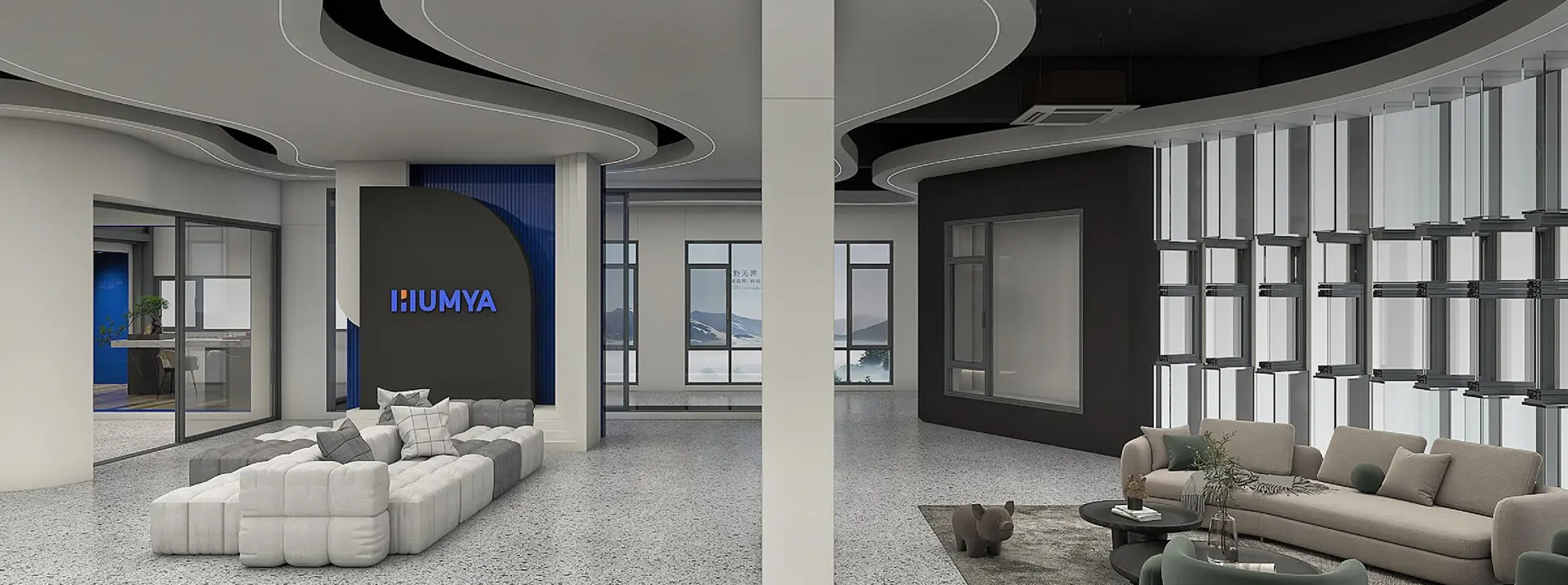
Unlocking Durability: The Unique Advantages of Aluminum Doors in Modern Architecture
In contemporary architecture, the selection of materials plays a crucial role in both aesthetics and functionality, with the Aluminum Door emerging as a standout choice for builders and architects alike. According to a recent report by the Freedonia Group, the demand for aluminum doors is projected to grow at an annual rate of 4.7% through 2026, driven by their superior durability and energy efficiency. Unlike traditional materials, aluminum offers resistance to corrosion, extreme weather conditions, and wear, making it ideal for modern buildings that prioritize longevity and sustainability. Furthermore, its lightweight nature and versatility in design allow for larger openings and innovative architectural solutions. As urban environments increasingly demand resilient structures that blend functionality with style, aluminum doors are poised to play a vital role in shaping the future of architectural design.

Key Attributes of Aluminum Doors: A Comparative Analysis with Traditional Materials
Aluminum doors are gaining traction in modern architecture due to their remarkable attributes when compared to traditional materials like wood and steel. One of the key advantages of aluminum is its lightweight nature, which simplifies installation and reduces structural demands on buildings. Unlike wood, aluminum does not warp, crack, or swell in varying weather conditions, ensuring longevity and minimal maintenance. This durability makes them ideal for both residential and commercial applications, delivering lasting performance while enhancing aesthetic appeal.
**Tips for Choosing Aluminum Doors:** When selecting aluminum doors, consider thermal break technology that improves insulation and energy efficiency. Additionally, look for powder-coated finishes to protect against corrosion and fading, ensuring that your doors remain attractive over time. Opting for custom designs can also provide unique architectural elements that stand out, blending functionality with style seamlessly.
Another significant benefit of aluminum doors is their recyclability. Unlike many traditional materials, aluminum is highly sustainable, allowing for eco-friendly construction practices. When investing in new doors, be sure to inquire about the manufacturer's recycling policies and sustainability practices to make a responsible choice.
Durability and Longevity: How Aluminum Outperforms Wood and PVC
 In the realm of modern architecture, the choice of materials plays a critical role in ensuring durability and longevity. Aluminum doors have emerged as a superior alternative to traditional options like wood and PVC. One of the key advantages of aluminum is its resistance to the elements. Unlike wood, which can warp, rot, or become infested with pests over time, aluminum stands strong against moisture and temperature fluctuations. This makes aluminum doors especially suitable for areas with harsh weather conditions, providing homeowners with peace of mind regarding their investment.
In the realm of modern architecture, the choice of materials plays a critical role in ensuring durability and longevity. Aluminum doors have emerged as a superior alternative to traditional options like wood and PVC. One of the key advantages of aluminum is its resistance to the elements. Unlike wood, which can warp, rot, or become infested with pests over time, aluminum stands strong against moisture and temperature fluctuations. This makes aluminum doors especially suitable for areas with harsh weather conditions, providing homeowners with peace of mind regarding their investment.
Furthermore, aluminum does not require the same level of maintenance that wood necessitates. Wood doors often need regular painting or staining to maintain their appearance and structural integrity. In contrast, aluminum doors come with finishes that can withstand fading and discoloration, ensuring they look contemporary for years to come. This low-maintenance attribute not only saves time and effort but also translates into long-term cost savings. By opting for aluminum, architects and homeowners alike can embrace sustainability, knowing that their choice supports both durability and aesthetic appeal in modern design.
Cost-Effectiveness Over Time: Analyzing the Economic Benefits of Aluminum Doors
Aluminum doors have emerged as a cost-effective solution for modern architecture, providing not just aesthetic appeal but also significant economic benefits over time. One of the most compelling advantages of aluminum doors is their durability. Unlike wood or vinyl, aluminum is resistant to warping, corrosion, and deterioration, which means that over the years, homeowners and commercial property managers can save substantially on replacement and maintenance costs. This long lifespan reduces the frequency of door replacements, making aluminum a financially savvy choice for both new constructions and renovations.

In addition to their longevity, aluminum doors offer energy efficiency that can lead to lower utility bills. Many aluminum doors are designed with thermal breaks and energy-efficient glazing, which can help regulate indoor temperatures. This property minimizes the reliance on heating and cooling systems, allowing for savings on energy costs over time. Moreover, aluminum's recyclability adds an extra layer of cost-effectiveness, as it can be repurposed at the end of its life cycle, contributing to sustainability goals. Overall, investing in aluminum doors not only enhances the modern appeal of a building but also serves as a strategic economic decision for the future.
Aesthetic Versatility: The Design Flexibility of Aluminum Compared to Other Materials
Aluminum doors have emerged as a popular choice in modern architecture, not only for their durability but also for their aesthetic versatility. According to a report from the National Association of Home Builders, nearly 30% of homeowners consider the visual appeal of materials a critical factor when renovating or building new homes. Aluminum offers a sleek, contemporary look that can be easily tailored to fit various architectural styles—from minimalist designs to more traditional appearances. Its ability to be finished in a wide range of colors and textures enhances its adaptability, allowing architects and designers to create distinctive and inviting spaces.
Moreover, a study by the Aluminum Association highlights that aluminum’s lightweight nature does not compromise its structural integrity, making it easier to mold into unique shapes and configurations. This flexibility enables the integration of expansive glass panels and innovative details that can transform the visual dynamics of a building. With a lifespan of over 30 years, aluminum doors not only sustain their aesthetic appeal but also withstand the test of time, adding long-term value to architectural projects. As architects continue to embrace sustainable practices, the recyclability of aluminum further positions it as a superior choice, marrying aesthetics with environmental consciousness.
Unlocking Durability: The Unique Advantages of Aluminum Doors in Modern Architecture
This chart illustrates the key advantages of aluminum doors compared to other materials in modern architecture, highlighting their aesthetic versatility, maintenance requirements, and durability. The data indicate that aluminum doors excel in design flexibility and long-term performance, making them a preferred choice in contemporary constructions.
Climate Resistance: Aluminum Doors and Their Performance in Extreme Weather Conditions
Aluminum doors have become increasingly popular in modern architecture, particularly for their superior climate resistance. According to the American Institute of Architects, these doors can withstand extreme weather conditions, including heavy rain, snow, and intense heat. Tests have shown that high-quality aluminum doors can endure wind speeds of up to 130 miles per hour, making them an ideal choice for regions prone to severe storms. Their durable construction helps to prevent warping or corrosion, ensuring long-term performance even in the most challenging climates.
In addition to their robust weather resistance, aluminum doors contribute to energy efficiency. The U.S. Department of Energy reports that properly insulated aluminum doors can reduce energy costs by up to 30%. This is especially important in areas with fluctuating temperatures, as they maintain comfortable indoor conditions while reducing reliance on heating and cooling systems. Coupled with the material's recyclability, aluminum doors represent a sustainable solution in architectural design, providing both durability and eco-friendliness in modern buildings.
Related Posts
-
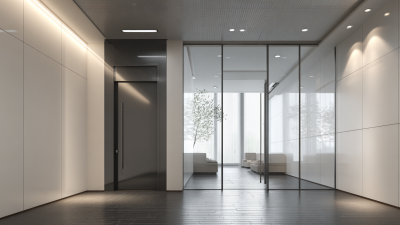
How to Choose the Best Aluminum Door for Commercial Spaces Based on Industry Case Studies and Insights
-
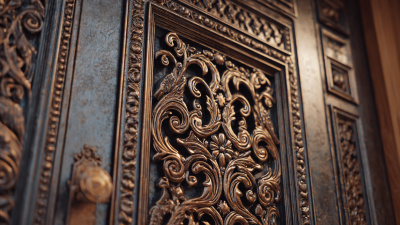
Craftsmanship from China Shaping the Future of the Best Aluminum Door
-
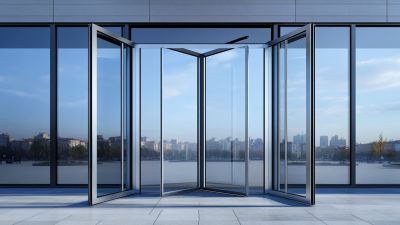
What are the Benefits of Choosing Aluminum Doors for Your Home and Business
-
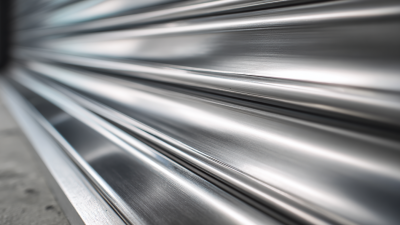
How to Identify Top Suppliers for Best Aluminum Doors: A Comprehensive Guide with Industry Insights
-
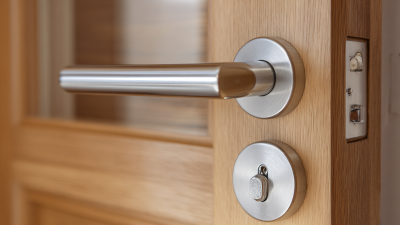
Global Success Through Quality Aluminum Doors from China to the World
-
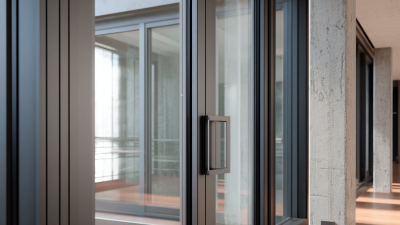
Understanding Industry Standards for the Best Aluminum Door Manufacturing Process




 Sliding Door
Sliding Door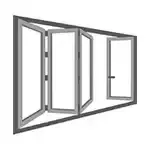 Folding Window
Folding Window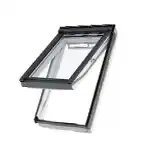 Skylight
Skylight Casement Window
Casement Window Sliding Window
Sliding Window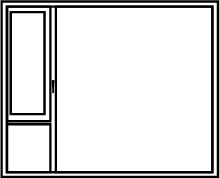 System Window
System Window Tilt and Turn Window
Tilt and Turn Window Sun Room
Sun Room